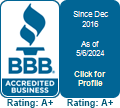Natural Ways to Melt Ice on Your Driveway
Slippery driveways and steps can be dangerous, especially if you’re not prepared. While laying gritty material like kitty litter or wood shavings will create some traction, it won’t melt the ice itself.
The good news is that there are a number of natural, eco-friendly and effective ways to melt ice on your driveway without damaging your concrete. These include snow melting mats, fertilizer, coffee grounds, rubbing alcohol and sugar beet juice.
Salt
Salt has long been the go-to option for melting ice on driveways. It works by lowering the freezing point of water and snow, making it easier to melt and less likely to return as hard ice.
However, rock salt is corrosive to concrete and can be damaging to plants and pets if ingested. And as temperatures drop below 20 degrees Fahrenheit, it becomes less effective.
To get the best results, remove as much snow from your driveway as possible before applying salt. You can use a plow or snowblower to make quick work of this step, and then apply salt. Be sure to spread it evenly using a rotary spreader for fast and efficient distribution. Avoid spreading salt on grass and plants near your driveway, and keep it away from pet paws as it is irritating to them. Also, if your driveway is near water or sewer lines, be careful about putting down rock salt as it can damage them over time.
Baking Soda
Sodium bicarbonate (baking soda) is a household staple with impressive multi-tasking powers, from zapping stinky refrigerator odors to cleaning greasy pans and baking pans. But it’s also an effective ice melt option for your driveway, as long as you don’t apply it in excess.
This natural alternative to salt lowers the freezing temperature of water, which helps snow and ice melt at a more manageable rate. It’s gentle on concrete and non-toxic to pets and plants, which makes it a smart choice for a wide variety of climate conditions.
Just sprinkle baking soda in the affected areas and let it work its magic. The only downside is that it takes longer than other options to dissolve ice, but it’s a great option when you don’t have any other products on hand. You may need to repeat this process as needed, especially if it’s cold and windy.
Coffee Grounds
The nitrogen and acids in coffee grounds help melt ice, and they’re safe for use around pets. They also don’t damage concrete and aren’t harmful to plants, unlike rock salt.
Alternatively, you can spread a handful of dry, used coffee grounds over your driveway to provide extra traction and prevent skidding. It’s a natural alternative to sidewalk salt, which is hazardous to grass and flower beds and can pollute groundwater.
Another option is calcium chloride, which works at a lower temperature than rock salt and doesn’t damage surfaces. It is available as liquid, flakes or pellets. You can also try magnesium chloride, which has a lower melting point and is safer for use near vegetation. Finally, vinegar is a cheap and effective alternative to rock salt. The acetic acid in vinegar lowers the melting point of ice and is safe for use around pets and plants.
Fertilizer
If you’re looking for an alternative to salt and calcium chloride, fertilizer can be an excellent option. Fertilizer mixes that contain potassium chloride, urea, and ammonium sulfate work well at lower temperatures than rock salt and don’t damage concrete or pavement.
These natural deicers can be purchased at most home improvement stores and are typically much less expensive than traditional ice melt products. Additionally, they won’t damage your driveway and are better for the environment and surrounding plants than traditional rock salts.
Of course, you can also simply use sand or kitty litter to provide traction and break the ice bond. These options won’t melt ice as quickly, but they are affordable and easy to find at your local grocery store. You can also purchase heated snow-melting mats that are laid down and plugged in, eliminating the need for any salt or deicers. These are a great solution for those who have pets or young children.
Sugar Beet Juice
Sugar beet juice is a surprising option that works well for melting ice on a driveway. It has a chemical composition similar to rock salt and is safe for your car, plants and sidewalks. However, it can stain concrete, so clean up as soon as it starts to melt.
Rubbing Alcohol
Rubbing alcohol also has the power to melt ice, but emptying a bottle on a large area would be expensive and inefficient. Instead, make a homemade de-icer by mixing one part water and two parts rubbing alcohol in a spray bottle. It may take longer to clear a sizable area, but it is a cost-efficient and environmentally friendly alternative to salt.
Rubbing alcohol has a lower freezing point than water, so it will quickly melt ice on your driveway. You can use a standard 70% isopropyl solution for this purpose. Mix it with a half-gallon of water and six drops of dish soap in a bucket, then pour it over the ice. It will dissolve the ice in no time, and you can easily shovel away the remaining snow.






